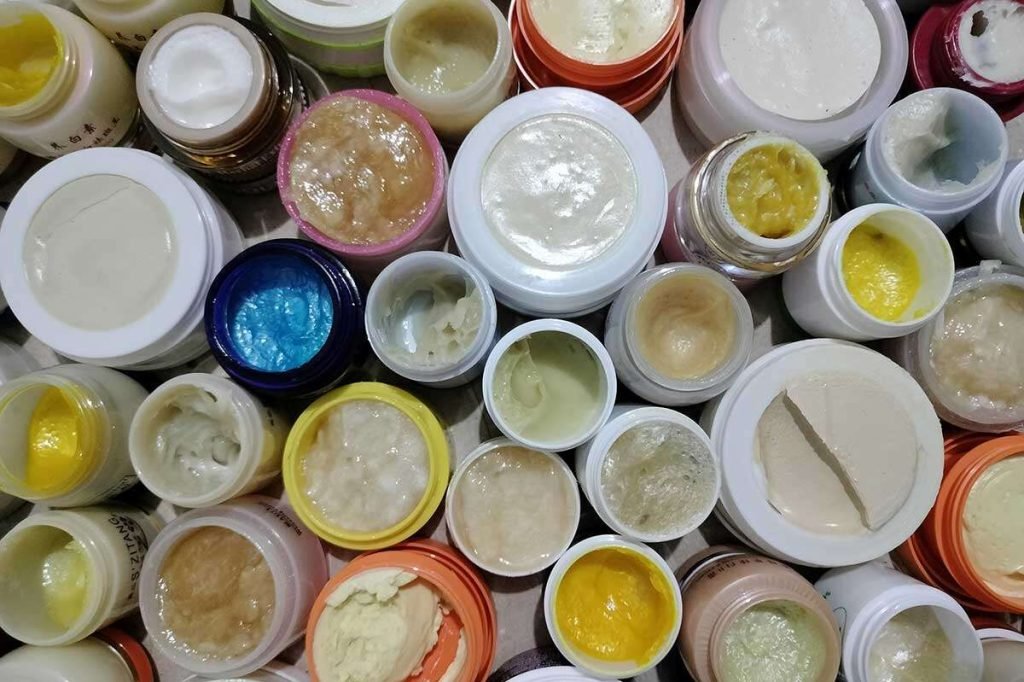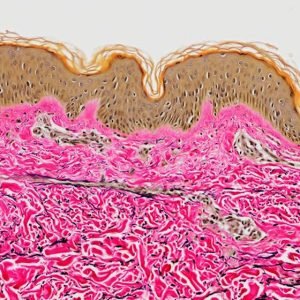
(Group stresses urgency to enforce the ban to protect human health and the environment)
Quezon City. The EcoWaste Coalition pressed duty-bearers, government regulatory agencies in particular, to enforce the oft-violated ban on mercury use in cosmetics such as skin lightening products.
The toxics watchdog group, which has been tracking mercury tainted cosmetics nonstop since 2011, called for the strict enforcement of the ban amid the unrestrained sale of imported cosmetics laden with mercury in online shopping platforms, as well as in some physical stores.
Based on the monitoring conducted by the group in time for the 11.11 online shopping sales, third party vendors continue to peddle dangerous cosmetics with mercury content in defiance of the published rules of e-commerce platforms against the listing of prohibited and restricted items.
The group also conducted the monitoring as the yearly National Skin Disease Detection and Prevention Week is observed, noting that mercury in cosmetics, a powerful poison, is also known to cause rashes, scarring and uneven skin color, as well as diminish skin’s resistance to bacterial and fungal infections.
In both Lazada and Shopee, the unabashed violation of the ban on mercury-containing cosmetics are too blatant to be ignored, the group emphasized.
For instance, online sellers flood e-commerce sites with product listings for Goree Beauty Creams made in Pakistan and banned in multiple countries, including the Philippines, due to their dangerously high mercury content that can reach from over 20,000 parts per million (ppm) to 58,400 ppm, way beyond the 1 ppm limit under the ASEAN Cosmetic Directive (ACD).
Facebook Marketplace and Tik Tok are also awashed with promos luring netizens into buying and using Goree to attain a lighter skin tone, claiming “no side effects,” the group said.
The same is true with Thailand-made Dr. Yahnee skincare products. Despite being banned by FDA Thailand for containing mercury and other restricted substances, and despite the more recent moves by FDA Philippines banning their sale, online sellers still import and sell these dangerous products with impunity.
The situation in the offline marketplace is no different. From January to September 2024, the EcoWaste Coalition monitored the unchecked trade of mercury-containing cosmetics in numerous local government units in Benguet, Bulacan, Nueva Ecija, Pampanga, Tarlac, Cavite, Rizal, and Cebu Provinces, and in Metro Manila, particularly in Caloocan, Mandaluyong, Manila, Muntinlupa, Navotas, Las Piñas, Parañaque, Pasay, Quezon, Taguig and Valenzuela Cities. The group even provided Manila Mayor Honey Lacuna with a map showing more than 50 retail stores where banned mercury cosmetics are sold.
The efforts of the government and the civil society are obviously not enough to put a stop to the unlawful and unethical trade of mercury cosmetics, which poses serious risks to public health and the environment.
For this reason, the EcoWaste Coalition repeated its call for a solutions-focused summit involving various stakeholders to end the scandalous proliferation of mercury-containing cosmetics in the marketplace.

Last July, the EcoWaste Coalition wrote to FDA Director General Dr. Samuel Zacate to propose a multi-stakeholder summit led by the agency to solve, once and for all, the seemingly interminable trade of mercury cosmetics.
The proposed summit will provide a platform for stakeholders from the government, industry, healthcare sector, media, civil society and other concerned sectors to forge an agreement towards a whole-of-society approach to stop the persistent trade of mercury cosmetics, and develop solutions and actions on various fronts to disable and bring an end to such an unlawful trade, the EcoWaste Coalition explained.
Last September, the group also wrote to Commissioner Bienvenido Rubio of the Bureau of Customs requesting his office to block the entry of contraband cosmetics tainted with mercury, which continues to penetrate our ports and the domestic market.
Mercury is a highly toxic substance with no known level of exposure that is considered safe, the EcoWaste Coalition pointed out, adding pregnant women and children are most vulnerable to the adverse effects of mercury exposure.
According to the World Health Organization (WHO), “adverse health effects of the inorganic mercury contained in skin lightening creams and soaps include: kidney damage, skin rashes, skin discoloration and scarring, reduction in the skin’s resistance to bacterial and fungal infections , anxiety, depression, psychosis and peripheral neuropathy.”
“Mercury in soaps, creams and other cosmetic products is eventually discharged into waste water,” the WHO warned. “The mercury then enters the environment, where it becomes methylated and can enter the food chain as highly toxic methylmercury in fish. Pregnant women who consume fish containing methylmercury can transfer the mercury to their fetuses, which can result in neuro-developmental deficits in the children,” the WHO further said.
To avoid mercury exposure, the EcoWaste Coalition urged the public to steer clear of chemical whiteners and accept our natural skin tone, noting that “all colors are beautiful, and should be respected and not discriminated upon.”
References:
https://www.who.int/publications/i/item/WHO-CED-PHE-EPE-19.13
https://ipen.org/news/toxics-watchdog-group-pushes-fda-led-summit-tackle-mercury-cosmetics






